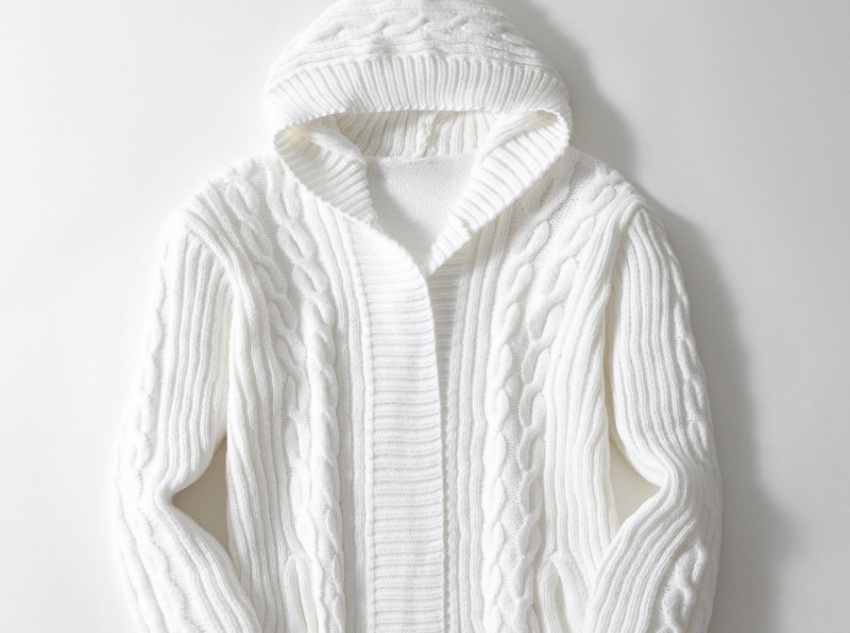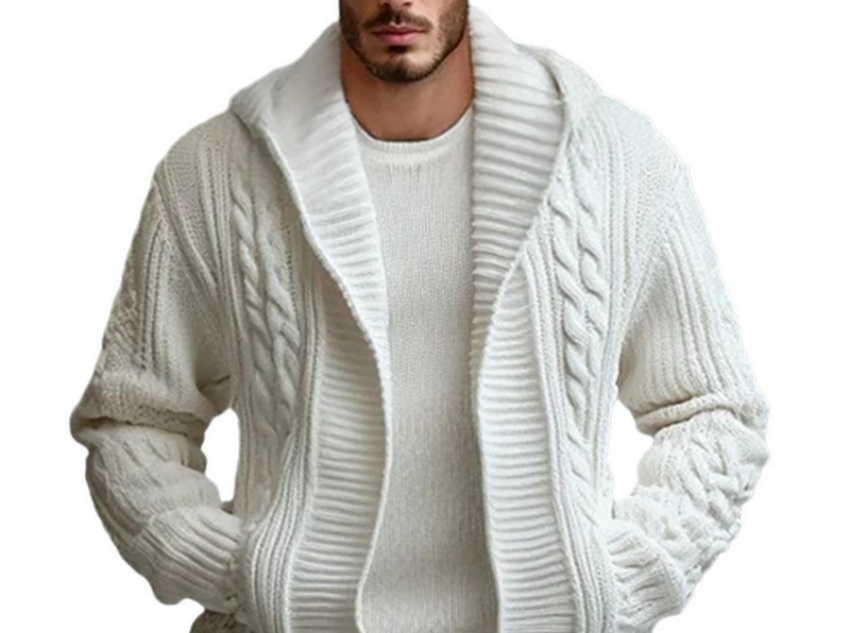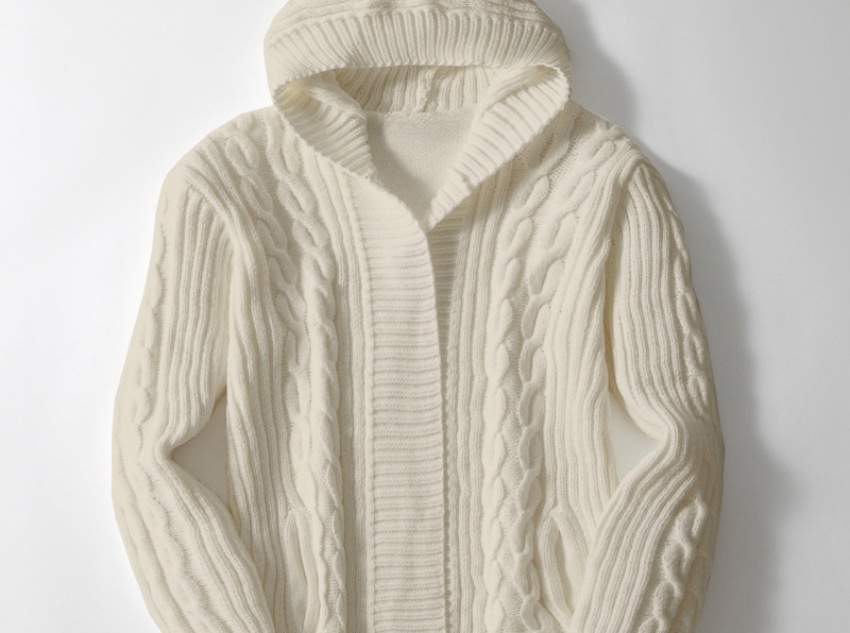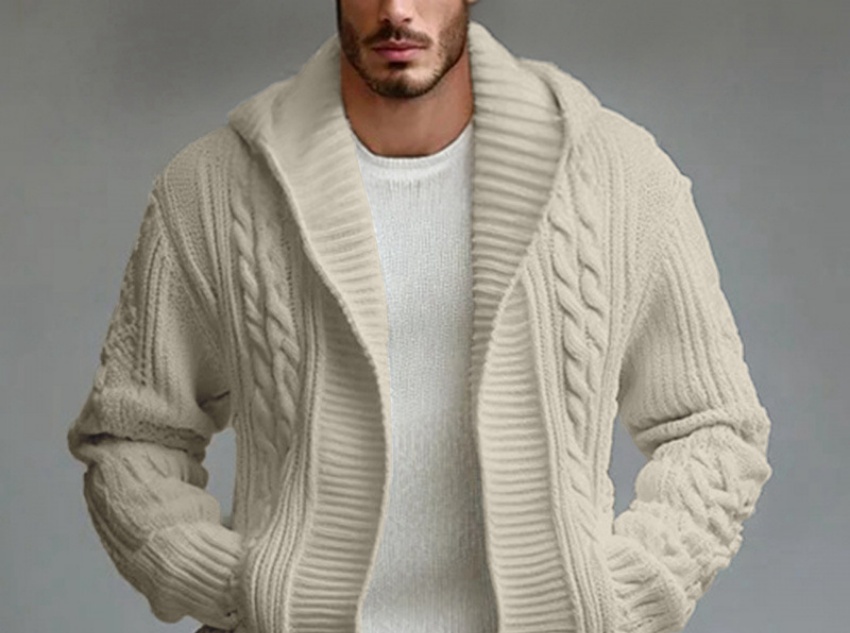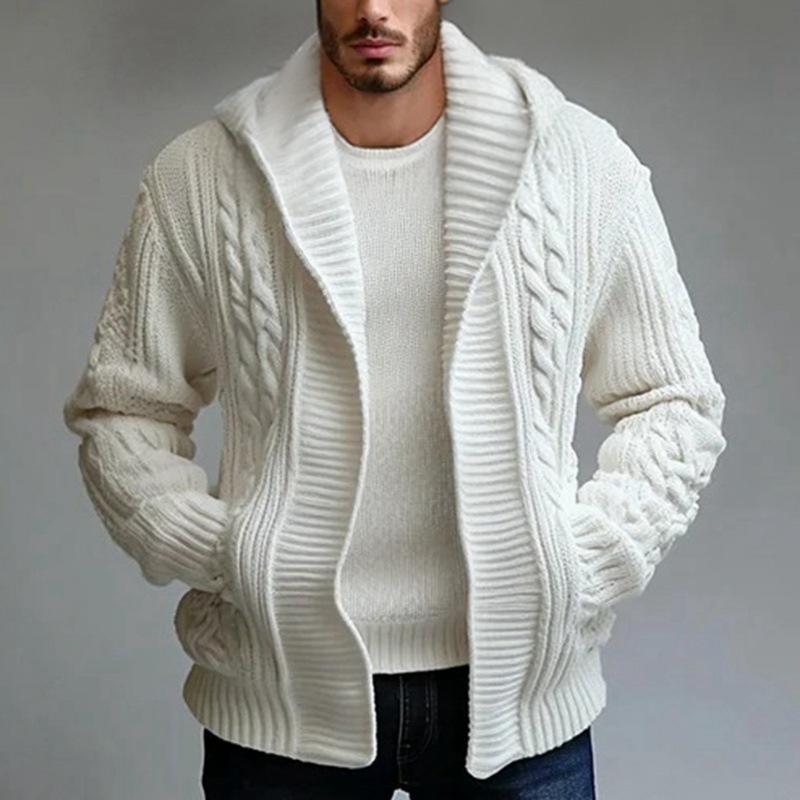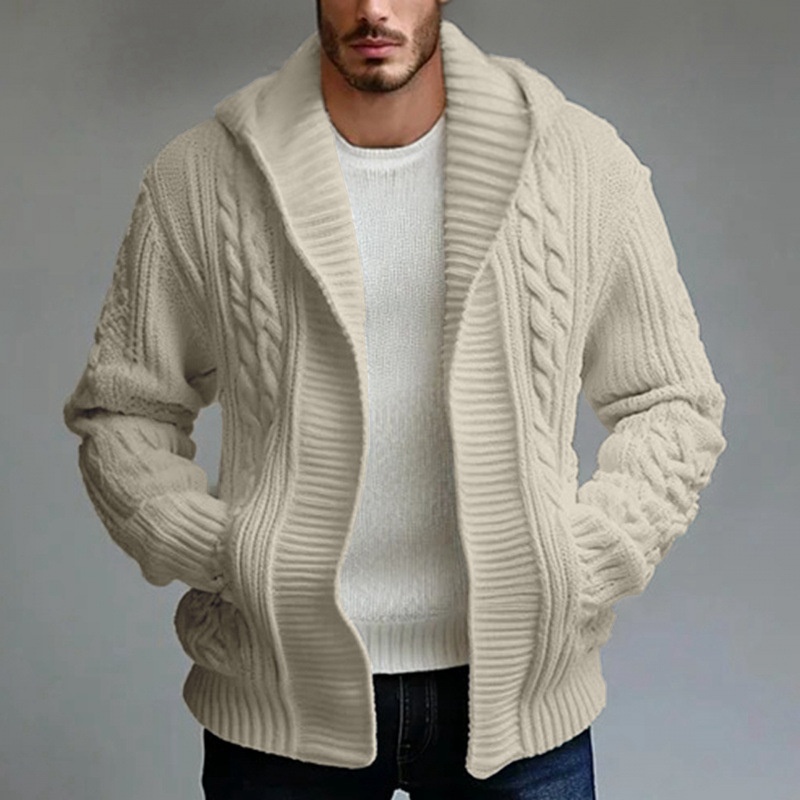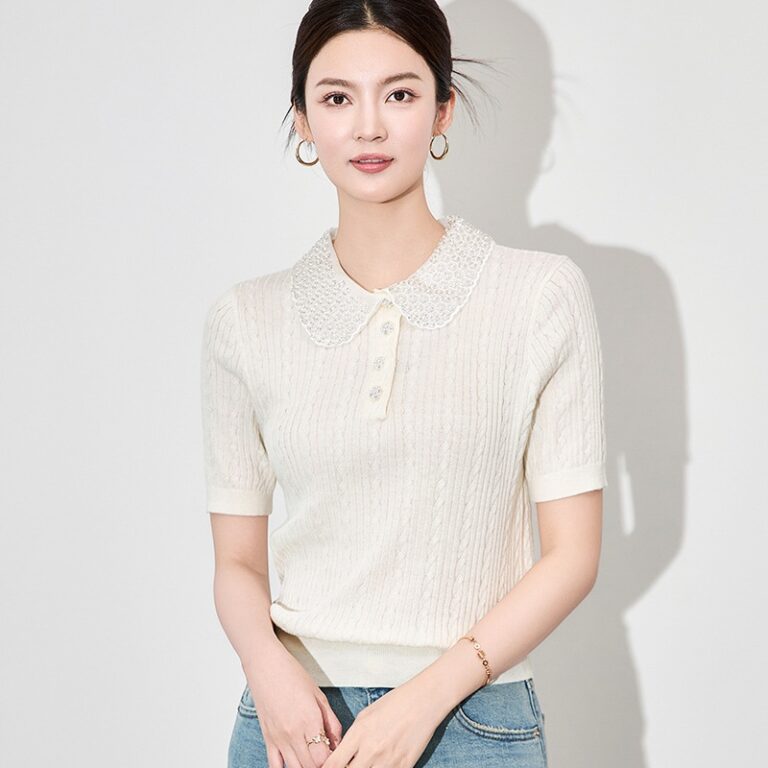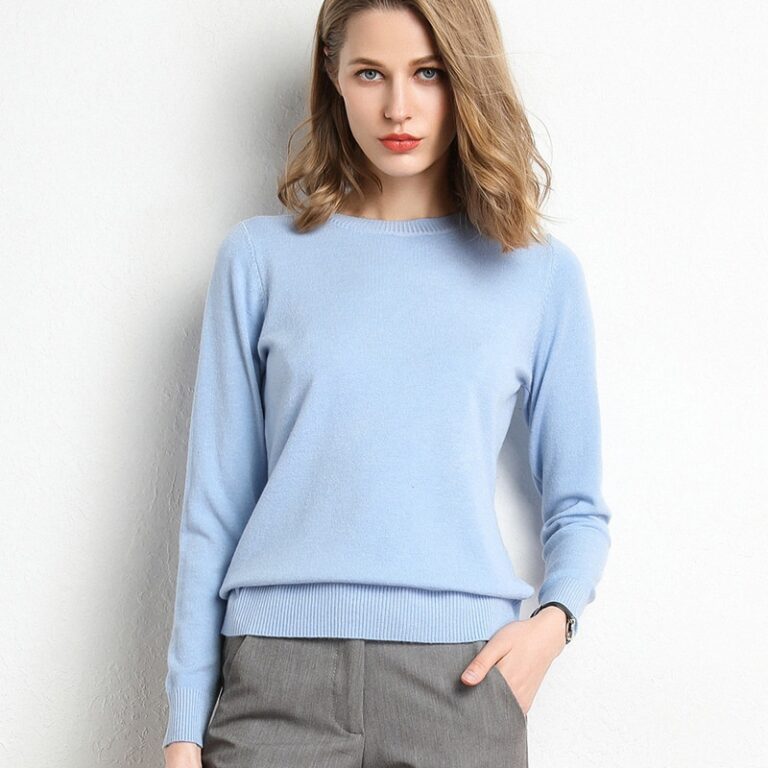This is a men’s hooded sweater in the picture. The main part of the sweater adopts the classic twisted knitting technique. This knitting method creates a pattern with a strong three-dimensional and textured effect by interweaving different strands of yarn. The twisted pattern not only adds visual layering to the sweater, but also enhances the thickness and warmth retention of the fabric to a certain extent.
Ribbed weaving is used at the neckline, cuffs and hem. Ribbed tissue is composed of front and back loop longitudinal lines arranged alternately in a certain combination. It has good elasticity, can closely fit the body parts, effectively prevent cold wind from entering, and also makes wearing more comfortable and less likely to deform.
The hooded part and the main part are woven in a way that echoes each other, both using twisted and ribbed knitting techniques. The edge of the brim adopts a ribbed closure to ensure the stability of the hat’s shape. At the same time, the tightness can be adjusted as needed to meet different wearing requirements.
The connection between the hat and the garment body is meticulously handled. Through ingenious stitching transitions, the two blend naturally, eliminating any stiffness or discomfort when worn and allowing for more free movement.
At the joints of various parts of the sweater, such as the shoulders and side seams, flat sewing or concealed sewing techniques are adopted. Flat seams make the joints smooth and firm, enhancing the durability of the clothes. Dark stitching makes the seams almost invisible from the outside, making the sweater more aesthetically pleasing as a whole and enhancing its sense of quality.
There are no obvious exposed thread ends on the surface of the sweater. During the production process, meticulous thread cutting and finishing procedures were carried out. And it has undergone ironing and shaping treatment, making the twisted and other woven patterns clearer and more regular, and the overall pattern is crisp and well-shaped.

